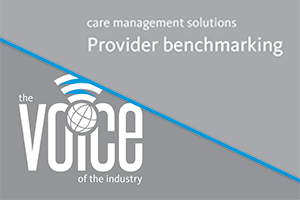
Medical directors with California-based hospital systems recently met for a discussion focused on the quality of medical care provided to Sedgwick workers’ compensation clients. We covered many areas, including provider scoring, fraud, legal challenges, communication and healthcare innovation.
One hot topic was the Sedgwick approach to the selection of quality in-network providers and the outcomes yielded. The providers in the Sedgwick Medical Provider Network (MPN) have been classified by using a 1 to 5 star ranking with 5 stars representing those with quality outcomes and associated lower overall claims costs. Data and trends have been analyzed for a number of years reaffirming our unique approach to provider selection at the time of injury. As a result, clients who have their injured workers treated by 4 and 5 star providers have experienced an overall claims cost reduction of 61% and a litigation rate that is 46% less than that experienced with the selection of a 1 star provider.
A major initiative based on these results is to educate 1 star providers, giving them industry tools and evidence-based practice recommendations that will impact their ranking and subsequent quality outcomes. Giving the medical director roundtable group a copy of provider rankings and collaborating throughout the year with them helps to improve this educational process.
Additionally, in response to the rising drug spend nationally and the notable long duration of claims in California, Sedgwick’s dedicated Complex Pharmacy Management program – supported by a team of physicians and nurses specially trained in pharmaceutical management – is working directly with prescribing providers. The Sedgwick pharmacy team is engaged in the following:
- A point of sale off-formulary alert system
- Creative solutions to weaning from opioids and narcotics
- Establishing drug testing protocols for suspected diversion
- Opioid contracts between the injured worker and the treating physician to establish proper medication management
All key components of this program have had a profound impact to date on the overall medical spend and the health and well-being of our mutual patients. Provider prescribing patterns were also changed. Specifically we have experienced:
- 25% reduction in the morphine equivalent doses prescribed
- 19% reduction in the book of business pharmacy spend
- 8% of the medications have been discontinued through alternative options and weaning
- 11% have been discontinued prior to the next fill
- 5% of the medications were blocked as unrelated to the workers’ compensation claim
“This sharing of experiences and brainstorming of treatment modalities provides a great depth and breadth of knowledge to our provider community,” states Dr. Teresa Bartlett, SVP, Medical Quality for Sedgwick, “It is our goal to provide a forum for collegial discussion with an end result of quality, impactful outcomes for our mutual injured worker population.”
What are your thoughts on this formula for quality medical outcomes? Learn more by reading our latest provider benchmarking study.
Terri Riley, SVP Managed Care Practices and Client Services